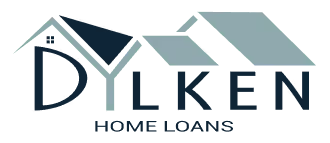5 Key Things to Know About Jumbo Loan Requirements
Every homebuyer’s situation is different. For many, a traditional 30-year fixed-rate mortgage works perfectly. But if you’re shopping for a luxury home in Texas or buying in an area where home prices exceed the standard loan limits, you may need a jumbo loan instead.
Here’s what you should know about jumbo loans, their requirements, and how they might fit into your homebuying journey.
What Is a Jumbo Loan?
The Federal Housing Finance Agency (FHFA) sets yearly limits for conforming loans—mortgages that can be purchased by Fannie Mae or Freddie Mac. In 2025, the baseline conforming loan limit is $766,550 for a single-family home in most U.S. counties, though it’s higher in designated high-cost areas.
When your loan amount is above that threshold, it’s considered a jumbo loan. This type of financing gives qualified buyers the ability to purchase high-value properties or homes in competitive neighborhoods where prices are above average.
5 Things You Need to Know About Jumbo Loan Requirements
Since jumbo loans are not backed by Fannie Mae or Freddie Mac, lenders take on more risk. To offset that risk, they apply stricter qualifying rules. Here are the main requirements:
1. Down Payment
A 20% down payment is common, but some lenders will approve a jumbo loan with as little as 10% down. In select cases, qualified borrowers may be able to put down just 5% if the loan is under certain high-cost thresholds.
2. Credit Score
Strong credit is essential. Many lenders require a minimum credit score of 720, though some may accept slightly lower scores if other financial strengths are present, such as significant savings or low debt.
3. Cash Reserves
You don’t have to be wealthy to qualify, but lenders often want reassurance that you can handle larger monthly payments. This means showing adequate cash reserves—typically several months’ worth of mortgage payments—saved in your bank or investment accounts.
4. Debt-to-Income Ratio (DTI)
Your DTI measures how much of your monthly income goes toward debt. For jumbo loans, lenders usually require stricter ratios compared to conventional mortgages. This ensures that your income comfortably supports your mortgage payment along with other obligations like car loans, student loans, or credit cards.
5. Documentation
Be prepared for more paperwork. Lenders will want to verify your income, assets, and financial history. Common documents include:
- Two to three years of tax returns
- W-2s or 1099s from the past 2–3 years
- Recent bank statements
- Information on savings, investments, or retirement accounts
Pros and Cons of Jumbo Loans
Like any financial product, jumbo loans come with advantages and trade-offs:
Benefits:
- Access to financing for higher-priced homes without multiple loans
- Competitive interest rates, often close to conforming loans
- Can be used for a primary residence, second home, or even investment properties (depending on the lender)
Drawbacks:
- Tougher qualification standards
- Larger down payment and cash reserve requirements
- More detailed underwriting and property appraisals
Is a Jumbo Loan Right for You?
Jumbo loans are ideal for Texas homebuyers who are looking at homes above conforming loan limits or purchasing in areas where property values run higher. While the requirements are more demanding, the benefit is simple: you get the financing you need in one loan without splitting it into multiple mortgages.
Explore Your Options with Dylken Home Loans
At Dylken Home Loans, we know that no two borrowers are the same. Whether you’re buying your first home, upgrading to your dream property, or investing in real estate, our team can help you navigate your financing choices—including jumbo loans.
We’ll walk you through the requirements, compare options, and find the loan that best fits your goals.
Contact us today to get started on your jumbo loan journey in Texas.
Get a free instant rate quote
Take a first step towards your dream home

Free & non binding

No documents required

No impact on credit score

No hidden costs
.avif)



.svg)

.svg)
